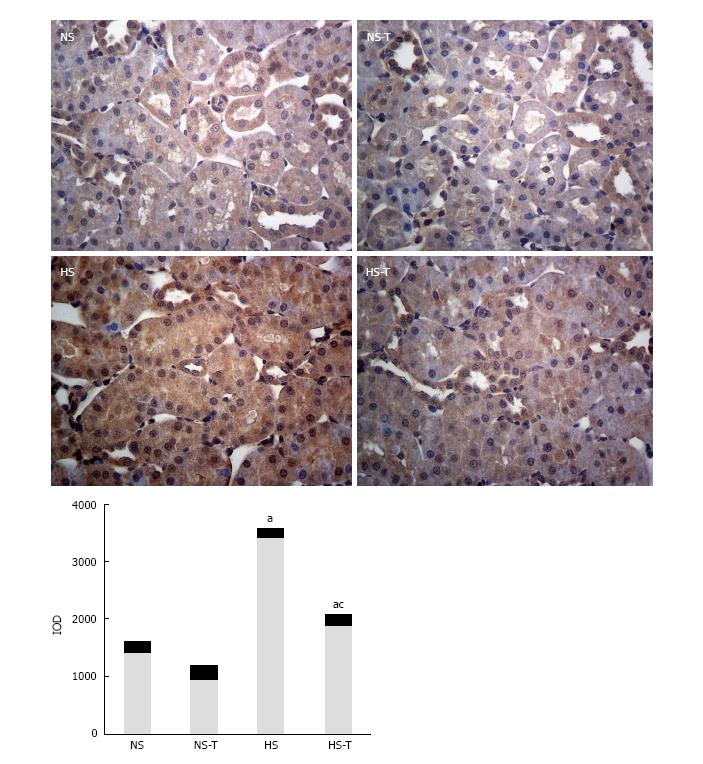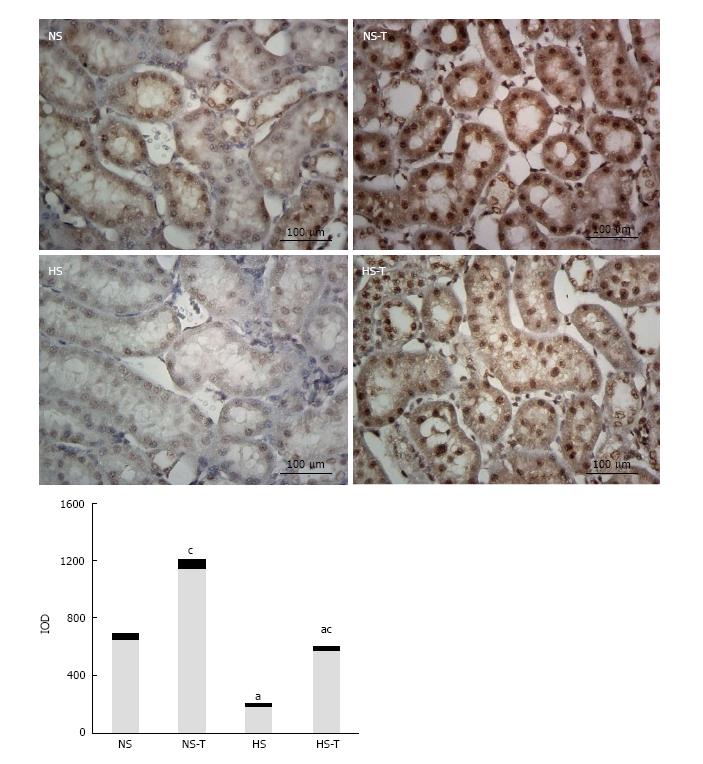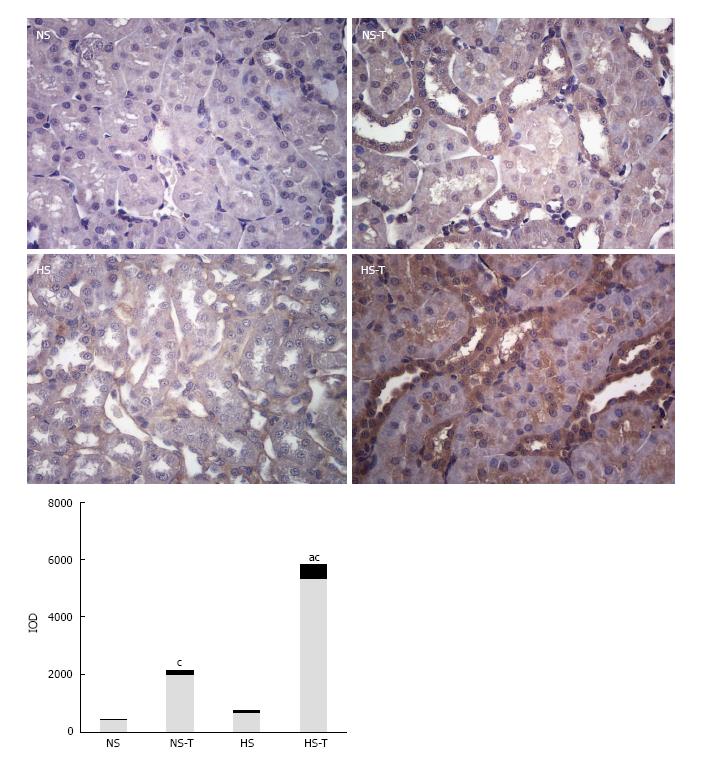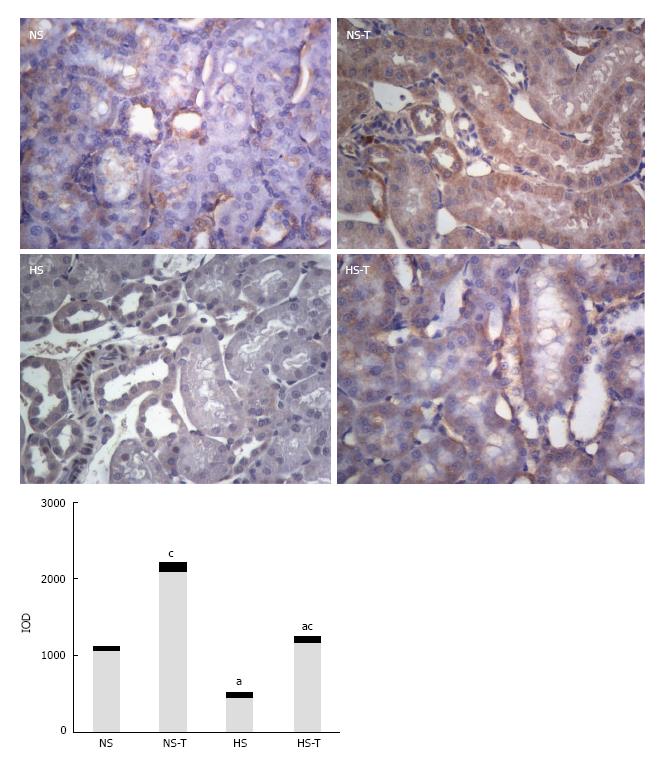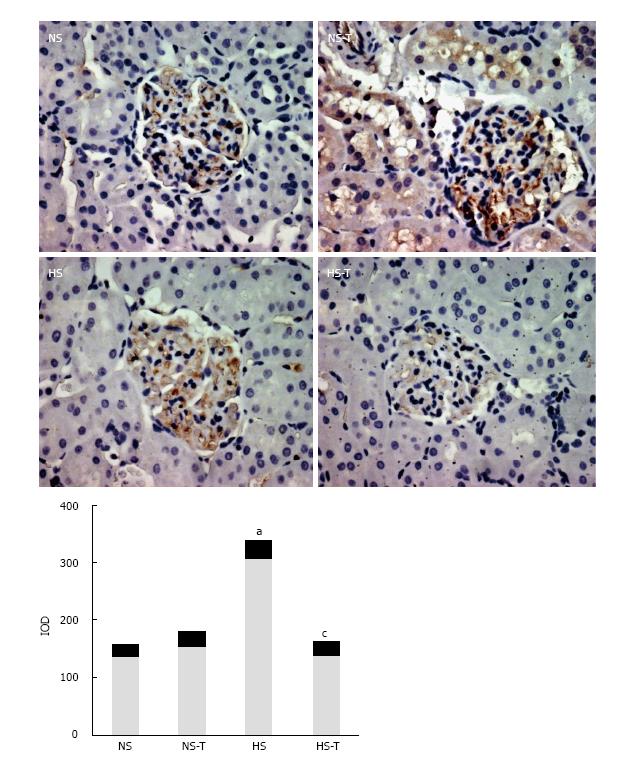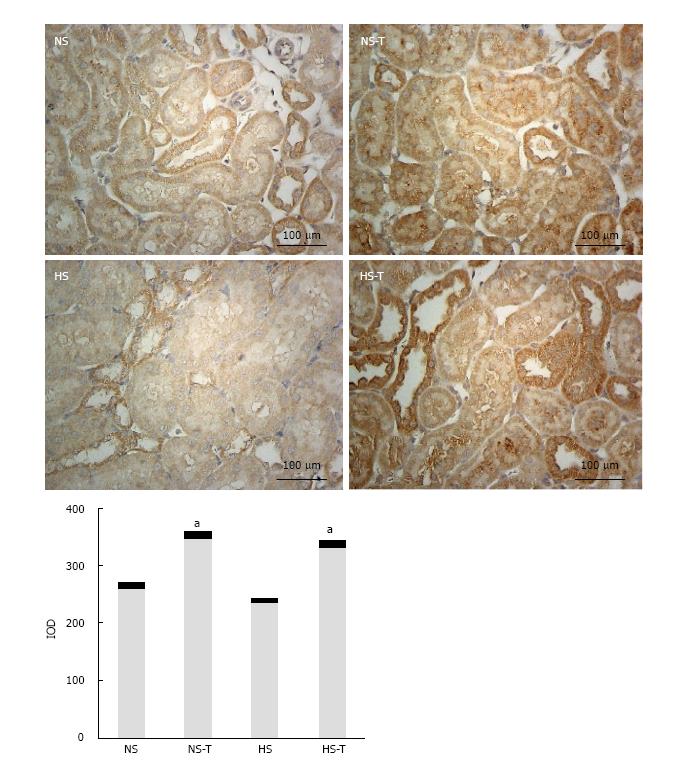Copyright
©The Author(s) 2017.
Figure 1 The graphs show the quantitative evaluation of Angiotensin II immunostaining in renal tissue.
Data are expressed as mean ± SEM; aP < 0.05 vs the respective NS group, cP < 0.05 vs the respective group without tempol. The photomicrographs represent Ang II immunostaining in NS, HS, NS-T and HS-T groups. Original magnification: 400 ×. IOD: Integrated optic density; NS: Normal salt diet group; HS: High salt diet group; NS-T: Normal salt diet plus tempol group; HS-T: High salt diet plus tempol group.
Figure 2 The graphs show the quantitative evaluation of angiotensin converting enzyme 2 immunostaining in renal tissue.
Data are expressed as mean ± SEM; aP < 0.05 vs the respective NS group, cP < 0.05 vs the respective group without tempol. The photomicrographs represent ACE2 immunostaining in NS, HS, NS-T and HS-T groups. Original magnification: 400 ×. IOD: Integrated optic density; NS: Normal salt diet group; HS: High salt diet group; NS-T: Normal salt diet plus tempol group; HS-T: High salt diet plus tempol group; ACE2: Angiotensin converting enzyme 2.
Figure 3 The graphs show the quantitative evaluation of Angiotensin 1-7 immunostaining in renal tissue.
Data are expressed as mean ± SEM; aP < 0.05 vs the respective NS group, cP < 0.05 vs the respective group without tempol. The photomicrographs represent Ang 1-7 immunostaining in NS, HS, NS-T and HS-T groups. Original magnification: 400 ×. IOD: Integrated optic density; NS: Normal salt diet group; HS: High salt diet group; NS-T: Normal salt diet plus tempol group; HS-T: High salt diet plus tempol group.
Figure 4 The graphs show the quantitative evaluation of Mas receptor immunostaining in renal tissue.
Data are expressed as mean ± SEM; aP < 0.05 vs the respective NS group, cP < 0.05 vs the respective group without tempol. The photomicrographs represent MasR immunostaining in NS, HS, NS-T and HS-T groups. Original magnification: 400 ×. IOD: Integrated optic density; NS: Normal salt diet group; HS: High salt diet group; NS-T: Normal salt diet plus tempol group; HS-T: High salt diet plus tempol group; MasR: Mas receptor.
Figure 5 The graphs show the quantitative evaluation of angiotensin type 1 receptor immunostaining in renal tissue.
Data are expressed as mean ± SEM; aP < 0.05 vs the respective NS group, cP < 0.05 vs the respective group without tempol. The photomicrographs represent AT1R immunostaining in NS, HS, NS-T and HS-T groups. Original magnification: 400 ×. IOD: Integrated optic density; NS: Normal salt diet group; HS: High salt diet group; NS-T: Normal salt diet plus tempol group; HS-T: High salt diet plus tempol group; AT1R: Angiotensin type 1 receptor.
Figure 6 The graphs show the quantitative evaluation of angiotensin type 2 receptor immunostaining in renal tissue.
Data are expressed as mean ± SEM; aP < 0.05 vs the respective group without tempol. The photomicrographs represent AT2R immunostaining in NS, HS, NS-T and HS-T groups. Original magnification: 400 ×. IOD: Integrated optic density; NS: Normal salt diet group; HS: High salt diet group; NS-T: Normal salt diet plus tempol group; HS-T: High salt diet plus tempol group; AT2R: Angiotensin type 2 receptor.
- Citation: Cao G, Della Penna SL, Kouyoumdzian NM, Choi MR, Gorzalczany S, Fernández BE, Toblli JE, Rosón MI. Immunohistochemical expression of intrarenal renin angiotensin system components in response to tempol in rats fed a high salt diet. World J Nephrol 2017; 6(1): 29-40
- URL: https://www.wjgnet.com/2220-6124/full/v6/i1/29.htm
- DOI: https://dx.doi.org/10.5527/wjn.v6.i1.29









